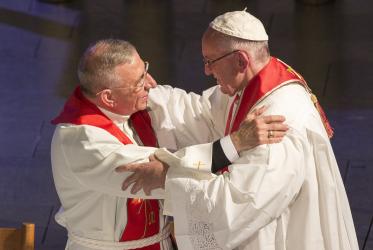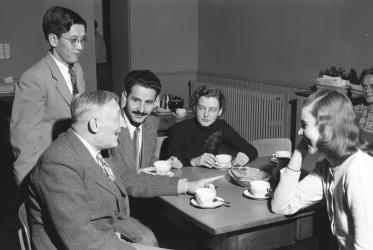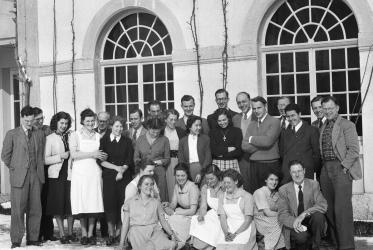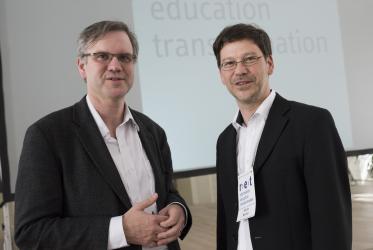Displaying 1 - 15 of 15
Paving the way for ecumenical studies, learning English in Bossey
24 September 2018
Bossey anniversary commemorates 70 years of heartfelt dialogue
28 September 2016
WCC’s Bossey institute celebrates 70 years with array of events
23 September 2016
Jürgen Moltmann leads ecumenical reflections in Geneva
14 January 2016
Basel University honors Ghanian Methodist theologian
09 December 2015
Panel revisits Dietrich Bonhoeffer’s ecumenical legacy
05 March 2015








